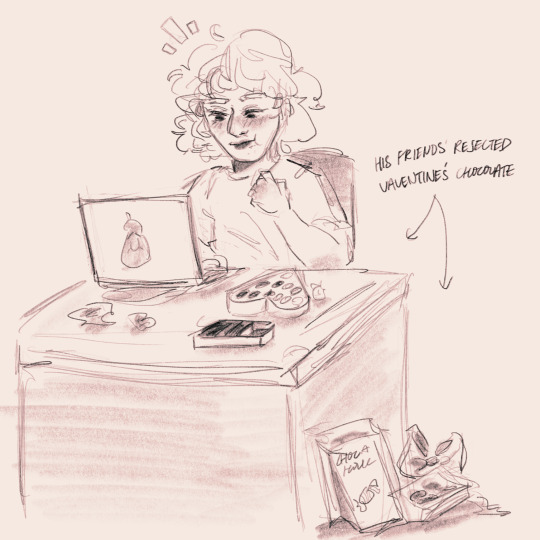#mis c
Explore tagged Tumblr posts
Text
Also preserved in our archive
Scientists have uncovered genetic variants that help to explain why some children with mild COVID-19 go on to develop a severe inflammatory condition weeks after their infection.
Throughout the COVID-19 pandemic, severe SARS-CoV-2 infections in children and infants were rare. But an estimated 1 in 10,000 children went on to develop multisystem inflammatory syndrome in children (MIS-C), presenting with a range of symptoms including rash, swelling and nausea and vomiting.
Now, an international team of researchers led by Imperial College London has identified a gene that may explain why some children were at greater risk of developing this rare condition. The study is published in the Journal of Experimental Medicine.
In an analysis including more than 150 cases of MIS-C from Europe and the United States, they found that rare variations of a gene that helps regulate the lining of the gut made children four-times more likely to develop systemic inflammation and an array of symptoms.
According to the researchers, understanding the genetic basis of MIS-C provides new insights into how the condition develops, who is at risk, and how patients and those with related conditions might be better treated.
Senior author Dr. Vanessa Sancho-Shimizu, from the Department of Infectious Disease at Imperial College London and The Francis Crick Institute, said, "MIS-C was a very worrying condition for children and their families as well as the clinical teams treating them. Thankfully, the majority of patients recovered, but the underlying mechanisms that drive this condition have been difficult to pin down.
"Working with colleagues around the world, we've been able to pinpoint rare genetic variants that we think are likely driving the systemic inflammation we've seen, making children more susceptible to MIS-C. We hope these findings will not only enable us to better understand the condition but to improve how we care for children with these types of conditions."
Genetic analysis During the COVID-19 pandemic, evidence suggested children were generally at very low risk of severe disease. But reports emerged of a new condition that affected a small proportion of children several weeks after their infection with SARS-CoV-2.
These children generally had mild or no symptoms at the time of their initial infection. But within six weeks they went on to develop a range of symptoms, including abdominal pains and vomiting, fever, rash and more. Clinicians initially reported the symptoms as resembling Kawasaki disease, but it was found to be a new condition call MIS-C .
In the latest analysis, 154 patients aged 0–19 with MIS-C were recruited in Europe and through a research center in the United States, with blood samples used to sequence patients' genomes. Researchers then developed a technique to search for genetic variants that might be associated with the condition.
Dr. Evangelos Bellos, first author of the paper and a Research Fellow in Imperial's Department of Infectious Disease, said, "Our new computational technique, which we call burdenMC, gives us the power to identify links between genes and diseases that were previously elusive. It is particularly useful for shedding light on small, diverse groups of patients with rare conditions such as MIS-C."
Using this approach, the researchers found that small changes in one gene, called BTNL8, were a common factor in children with the condition. Typically, this gene helps to regulate the immune cells in the gut lining, but in patients with MIS-C, rare variants of BTNL8 are believed to have made the gut more sensitive to the SARS-CoV-2 virus and increased inflammation throughout the body, leading to an array of symptoms.
The team worked with the Immunosurveillance Laboratory at the Crick, led by Professor Adrian Hayday, that first identified a function for BTNL8 in the human gut as a regulator of localized T-cells that seemed to contribute to maintaining gut barrier integrity.
Professor Adrian Hayday, Principal Group Leader at the Crick and Professor of Immunobiology at King's College London, said, "The discoveries implicating BTNL8 were wholly unexpected, and potentially offer entirely new insights into mechanisms that ordinarily prevent virus infections from leading to life-threatening disease."
Compared with matched healthy controls, patients with rare BTNL8 variants had a four-fold increase in the risk of developing MIS-C symptoms. The analysis also found that children with European and Hispanic ancestry were more likely to have the variants, and so were at greater risk of the condition.
The researchers say they are now working on understanding the exact mechanisms by which these rare variants promote MIS-C. They are also exploring if the gut also plays an important role in the development of other similar childhood inflammatory conditions like Kawasaki disease.
More information: Evangelos Bellos et al, Heterozygous BTNL8 variants in individuals with multisystem inflammatory syndrome in children (MIS-C), Journal of Experimental Medicine (2024). DOI: 10.1084/jem.20240699 rupress.org/jem/article/221/12/e920240699/277108/Heterozygous-BTNL8-variants-in-individuals-with
#mask up#public health#wear a mask#pandemic#covid#covid 19#wear a respirator#still coviding#coronavirus#sars cov 2#long covid#MIS-C#mis c
46 notes
·
View notes
Text

evil yuri toxic yuri

and sciset doodles cause. uh.hhhhh
#i love evil toxic yuri i says with joys#i was then shot 57 times#/ref#i made a rendered version of this but i hated it so heres the unrendered one#if i got a nickel every time i rendered something and ended up liking the unrendered flats more i would have enough to buy a yacht#why is there a c in yacht#my art#mlp art#mlp fim#my little pony#mlp#scitwi#sci twi#sciset#eqg#twilight sparkle#equestria girls#sunset shimmer#cadalis#lovebug#princess cadence#cadence#mi amore cadenza#queen chrysalis#mlp chrysalis#chrysalis#cadance x chrysalis#chrysalis x cadance
2K notes
·
View notes
Text

::Guidance
first finished E/C art in sooo long ; - ;
posting just in time for @lesmisshippingshowdown I hope ' 3'
#lmss steal#enjolras/combeferre#combeferre/enjolras#les mis#les misérables#enjolras#combeferre#e/c#traditional /#watercolour
226 notes
·
View notes
Text


francolapinto: mi mejor momento del día.. q locura y que sueño hecho realidad darle la mano a @lewishamilton después de una carrera juntos wow | my best moment of the day… how crazy and what a dream come true to shake @lewishamilton hands after finishing a race together wow
#franco colapinto#lewis hamilton#c#I AM SO FOND OF HIM mi vida lo pueden dejar para siempre en f1#azerbaijan gp 2024
582 notes
·
View notes
Text



a little slice of life from mentors!au
#ninja showdown#my immortal soul#first ninja#rc9gn first ninja#chase young#first ninja x chase young#Mentors!AU#ive been debating if i should post more art for that au but the ask inspired me to finally finish these up ;)#all of these were drawn from references because poses fit their professor au versions so well >;3 c#i might not have prepared anything for valentine's day but the holiday mood did affect me UwU gonna be drawing some mis
175 notes
·
View notes
Text
chciałbym zapomnieć o rzeczach, co ciągle we mnie siedzą.
#blog z cytatami#cytat dnia#cytat po polsku#polski cytat#cytaty#brak chęci do życia#polski blog#nie chce mi się żyć#moje zycie#nie chce zyc#jebacmilosc#jebacludzi#jebać ludzi#jebać miłość#jebac wszystko#jebać życie#nie chce żyć#nie chce jesc#chce byc lekka jak motylek#nie chce być gruba#chce widziec swoje kosci#chce byc idealna#chude jest piękne#cytat#c
647 notes
·
View notes
Text






More costume design in Fangs of Fortune (part 1)
#the details my god#I wish I had clothes this fancy#Tian Jiarui#Xu Zhenxuan#Hou Minghao#Fangs of Fortune costume design#Lin Ziye#Lester Lin#Cheng Xiao#Ai Mi#Fangs of Fortune#costume design#costume drama#C-drama
207 notes
·
View notes
Text


CHOOSE YOUR CHAMPION
#((sry garrett i'm team marian i can't resist her charming voice & her piercing blue eyes & her perfectly toned arms that look like they c-)#((oh um s-sorry what was i talking about? i think i got distracted...))#((also would you guys be mad if i said i'm kind of a wasian hawke truther? no evidence to support it just my own delusions <3 LOL))#garrett hawke#marian hawke#dragon age 2#dragon age#da2#my art#((i always forget garrett has a real name cuz whenever i play m!hawke i always name him mike so he'll be m-mi.. mike ha- nvm you get it))
1K notes
·
View notes
Text

It is officially past Valentine's, which means Enjolras gets to have his friends' rejected/discounted chocolate while they wallow in the misery of romance 😌

Some friends' "rejected valentines" does seem a little fishy, though......🤔
#completing my trifecta of Enjolras ships:#e/R; e/c; e/by himself#les mis#enjolras#grantaire#syrup art tag
67 notes
·
View notes
Text




bonk! bonk! bonk! | AO25 Opening Week Charity Match
#alex de minaur#mouse man#carlos alcaraz#mi tamagotchi#mouse man national moca#mouse and puppy#u guys should know the files for these gifs were named a-bonk-1/2 and c-bonk-1/2#i always name my files silly things it is one of my few joys in life
67 notes
·
View notes
Text





#mine . . ! ^ w ^#don’t steal ^ ^ !#all stickers edited by mi#kitty speaks . . 👧🏻#my txt :3 🙇🏻♀️#care bear gif by 90zdreams but edited by mi!#bow divided by socksyy on deviantart :3#rainbow sticker edited by mi but idk who made it :c#poetblr#morute#♡ lonely teddy bear ♡#sad bbydoll#sad bbydolls#ᦏ♡᪔#rotting angel kitten#the knife girl#pastel#thankfully i found m human 🧔🏻♂️🍭
57 notes
·
View notes
Text



☹️☹️ . just look at his cheeksies
#. may he always have his ochazuke .. twice a month#. having lunch and i thought about him :c mi bebe
32 notes
·
View notes
Note
enjolras/combeferre/grantaire needs to be talked about more … so peak ….
.
28 notes
·
View notes
Text


PhD day 794 | One of those days where I have a little cry over feeling like I'm disappointing people. At least I feel less aimless about my analysis, reading about quantitative analysis and Grounded Theory helped a lot.
#we went to the beach and it was almost empty except for a few surfers#it's considered autumn here so no one is at the beach before noon on a weekday when it's cloudy and “only” 25°C#honestly very healing. despite a local eagle almost stealing our banh mi#phd molte#molte talks#uniblr#studyblr#gradblr#phdblr#japan
66 notes
·
View notes
Text
Also preserved in our archive
Stephanie Soucheray, MA
A new large study of children in California shows that unvaccinated kids are at a much higher risk of developing multisystem inflammatory syndrome in children (MIS-C) if they were unvaccinated with two doses of Pfizer's mRNA COVID vaccine before contracting COVID-19.
The protection was significant in all children ages 5 to 17 years, but most notable in children ages 12 to 17, where even one dose of vaccine offered strong protection against developing the severe condition.
MIS-C was first identified in the initial months of the pandemic. Clinically similar to Kawasaki disease or toxic shock syndrome, MIS-C occurs 2 to 8 weeks following COVID-19 infection in a small percentage of children.
"MIS-C is severe, with all children hospitalized, half requiring care in the intensive care unit, and 1–2 % dying," the authors wrote. "However, little is known about the effect of vaccination on the development of MIS-C, especially in the youngest children."
Adolescents most protected In the study, the authors looked at all MIS-C cases in California reported from January 2, 2021, to June 23, 2022. Vaccination history was linked to MIS-C cases.
A fully vaccinated MIS-C case was defined as a case occurring more than 14 days after the second dose of mRNA vaccine, the authors said.
In total, 133 children with MIS-C (60 aged 5 to 11 and 73 aged 12 to 17 ) were included in the study, though California officials noted another 5 cases of MIS-C in children who were partially vaccinated during the study's time frame.
In the 5- to 11-year-old age-group, 85% of those with MIS-C were unvaccinated, and the incidence rate ratio (IRR) of MIS-C in unvaccinated children was 3.3 (95% confidence interval [CI], 1.6 to 6.7) times higher than in fully vaccinated children.
Among 12- to 17-year-olds, 90% of those with MIS-C were unvaccinated, and the IRR of MIS-C in unvaccinated children was 22.9 times higher (95% CI, 10.5 to 49.8).
When partially vaccinated children—those who received one vaccine dose— were added to the analysis with fully vaccinated children, the IRR of MIS-C among unvaccinated children aged 5 to 11 years was 3.4 times higher (95% CI, 1.7 to 6.6), and in the older age-group it was 16.0 times higher (95% CI, 8.4 to 30.3).
"Our results suggest that administration of the Pfizer-BioNTech mRNA SARS-CoV-2 vaccine in children, including those in the younger 5 to 11 years of age cohort, decreased the likelihood of developing MIS-C," the authors concluded. "These findings further enforce the importance of vaccinating children against SARS-CoV-2."
#mask up#covid#pandemic#public health#wear a mask#covid 19#wear a respirator#coronavirus#still coviding#sars cov 2#long covid#MIS-C
57 notes
·
View notes
Text

#there is no more Monsieur le Maire serving c*nt#les mis#les miserables 1978#javert#jean valjean#valvert
457 notes
·
View notes